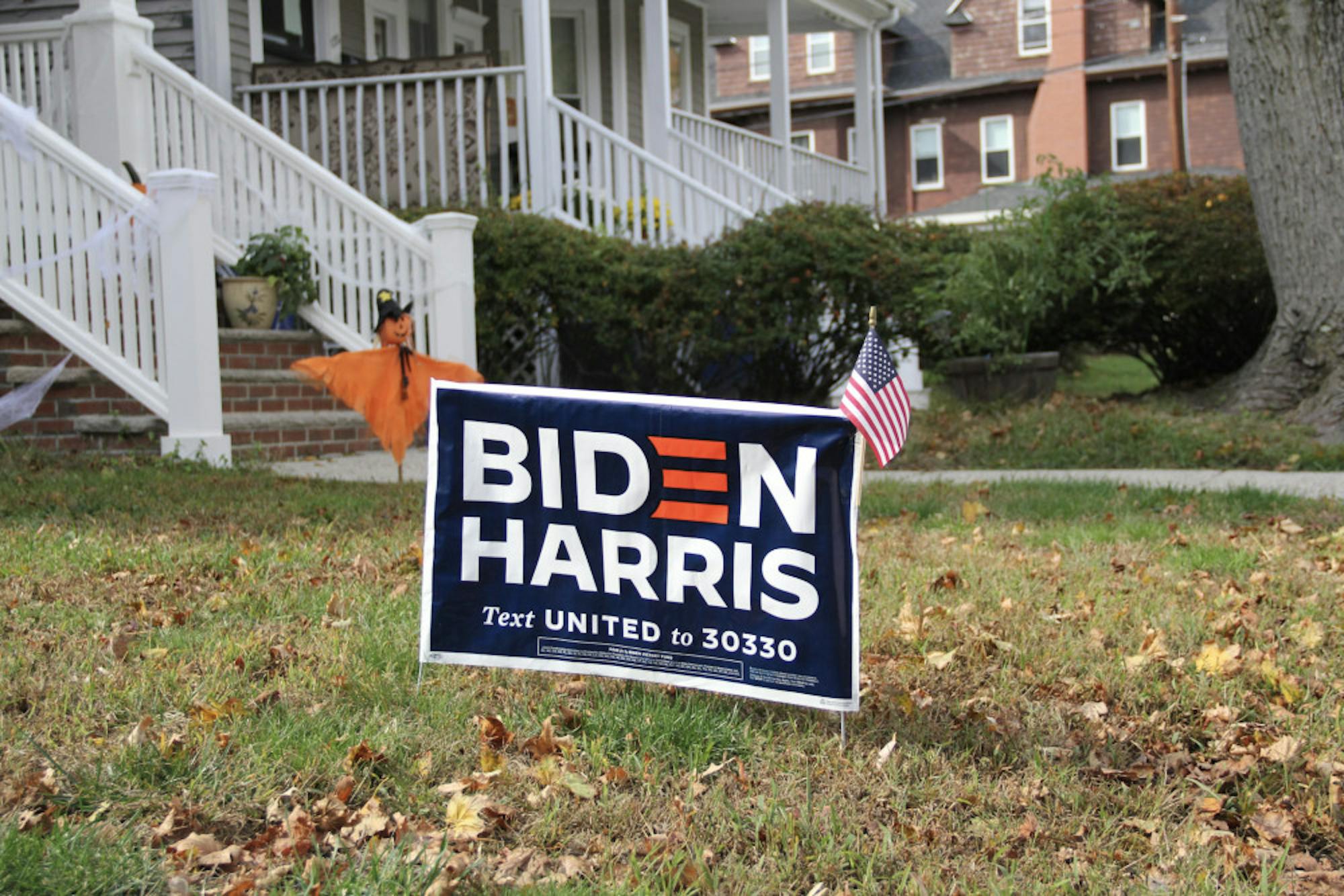Tufts undergraduate studentsconducted a nationally representative survey of American adults for the presidential election as part of ProfessorBrian Schaffner’s “Polling the 2020 Election” seminar. The poll was fielded online with a sample provided by Lucid, a company that provides samples to online survey firms.
The poll found that former Vice President Joe Biden led President Donald Trump 52% to 45% in the national survey of likely voters.
Schaffner, a professor of civic studies, highlighted one important finding from the survey, which has been evident in other polls throughout the election cycle.
“Almost one out of 10 people who voted for Trump in 2016 are not supporting him this year,” Schaffner said. “Given how narrowly he won the election, that's a pretty big deal.”
Schaffner added that Bidenis also preferred to Trumpamong voters who did not cast a ballot in 2016, and among voters who voted for a third-party candidate in 2016.
“A big part of the story is that Biden has held on to most of the Clinton voters, but Trump hasn't really held on to as many of his own supporters,” Schaffner said. “And those people who are coming back to the polls or who are voting for the first time are overwhelmingly favoring Biden.”
The poll explored several public opinion research questions posed by the students, allowing them to apply concepts and statistical skills they learned in class, according to Schaffner.
The sample used for the survey was weighted by gender, age, region, education, race and 2016 presidential vote choice. Earlier in the semester, the students learned how to weigh sample data to adjust for biases and they applied these methods to the survey sample.
Aadhya Shivakumar, a student in the seminar, explained some of her takeaways from the project.
“Doing something, in a practical sense, in politics has taught me a lot more about public opinion and how polling actually works,” Shivakumar, a junior, said.
Shivakumar analyzed the relationship between employment status and early voting from the survey results.
“What I found is that nearly 47% of people who said they were retired had voted early by [Oct. 25], and the lowest category was people who are employed full time,” Shivakumar said.
Shivakumar explained that her classmates are working in groups to explore public opinion for a separate research project with the polling results. Her group is running a survey experiment to look at the relationship between a political candidate’s sexuality and the participant’s vote choice.
Schaffner hopes that the project will inform his students when they consume and interpret poll results during future election cycles.
“Knowing the kinds of problems that can come up, knowing what to worry about … that’s one big point that I hope they learn,” he said.
Schaffner, who is also a co-principal investigator on the Cooperative Congressional Election Study, one of the largest academic surveys on U.S. elections, was thrilled to see the students get excited about analyzing the survey data once the results were finalized.
“That's how I feel about political science data and my own research,” Schaffner said. “When I see students having that same kind of excitement for their research, that makes me feel really excited for them.”
He also hopes that he can impart an appreciation for visually appealing graphics when presenting results from polling data.
“Since so much of what we do now is online, it's really all about the visual medium, and you see so many of these graphs circulated on social media,” Schaffner said. “There's definitely an art to doing a really nice graphic."
Schaffner believes this experience will provide the students with useful data skills.
“Data analytics are a huge part of a huge sector of jobs in politics, but also in other areas,” he said. “Giving students the skills to be competitive in the job market for jobs in those areas and getting them passionate about those kinds of jobs is also helpful.”
Alan Solomont, dean of the Jonathan M. Tisch College of Civic Life, congratulated the students for their work.
“This polling research is a great example of Tufts students participating in the election and of Tufts faculty teaching the skills of democracy,” Solomont wrote in an email to the Daily. “Tisch College is proud to be supporting this important work, and we congratulate the students on the wide reach of their polling and analyses.”






